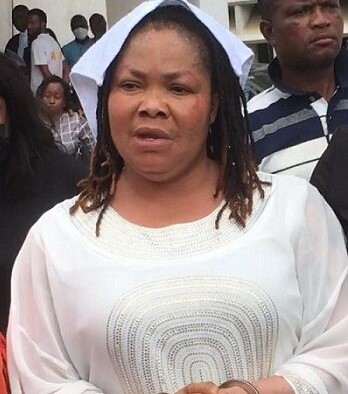
Agradaa Sentence Sparks National Debate: COFIIG-GHANA Calls for Balanced Justice, Restitution, and Equal Accountability
The recent 15-year jail sentence handed to Evangelist Patricia Asiedua, popularly known as Nana Agradaa, has ignited a nationwide debate over justice, religious accountability, and the urgent need for victim restitution within Ghana’s criminal justice system.
While many Ghanaians have welcomed the conviction of the controversial spiritual leader — accused of defrauding her followers through promises of spiritual money multiplication — others have questioned whether the sentence is excessively harsh and whether the court missed an opportunity to pursue restorative justice.
Among those expressing both support and concern is the Coalition for Integrity in Governance – Ghana (COFIIG-GHANA), a civil society organisation dedicated to promoting transparency, anti-corruption reforms, and the protection of vulnerable citizens. In a strongly worded statement issued on Thursday, COFIIG-GHANA described the ruling as a “wake-up call” to a growing wave of spiritual fraudsters exploiting desperation under the cloak of religion.
“The conviction of a high-profile figure like Nana Agradaa sends a strong and timely message to others engaging in similar fraudulent activities,” said Hon. Simon Yaw Awadzi, Executive Director of COFIIG-GHANA. “But we are equally concerned about the severity of the sentence, especially considering it is a first-time conviction.”
Nana Agradaa, a former fetish priestess turned Christian evangelist, was sentenced by an Accra Circuit Court on Wednesday after being found guilty on six counts of defrauding by false pretence. According to court records, she lured followers into handing over significant sums of money, claiming she would spiritually double their contributions during live church sessions and TV broadcasts.
Where Is the Restoration for Victims?
COFIIG-GHANA is urging the courts to pursue a more balanced approach to justice — one that includes restitution for victims. The coalition believes Ghana’s justice system must evolve to reflect restorative principles, especially when identifiable victims can demonstrate financial losses. However, it acknowledged the complexities of this particular case, as most victims failed to document their transactions, providing neither receipts nor formal evidence of the amounts lost.
“Many victims were driven by greed, not just faith. Their desperation led them to give away money without contracts or proof,” Awadzi added.
Time to Crack Down on Religious Charlatans
Beyond this individual case, COFIIG-GHANA called for a broader crackdown on self-proclaimed men and women of God who manipulate the vulnerable under the guise of ministry.
“In the New Testament, Paul’s shadow healed the sick. Today, we spend millions organising crusades and call it a miracle if one cripple stands up from a wheelchair — if it’s not staged. This is not faith; it is fraud,” the statement declared.
The coalition urged state authorities, religious councils, and media regulators to ensure that church leaders, prophets, and televangelists are held accountable — both legally and morally — for their conduct.
Justice Must Be Consistent — Not Only for the Poor
COFIIG-GHANA further emphasised that justice must be impartial and not only enforced against the poor and powerless. The group drew a direct comparison to several high-profile political cases currently in the spotlight, citing:
Ken Ofori-Atta, former Finance Minister, facing an Interpol red notice for alleged misappropriation of over $58 million meant for the National Cathedral Project
Kwabena Agyapong Wontumi, former Ashanti Regional Chairman of the NPP, recently arraigned over allegations of abuse of office
A National Signals Bureau official on trial for alleged corruption
Cases involving the controversial Sky Train project, under investigation for financial improprieties
Cecilia Dapaah, former Minister, charged in connection with abuse of office and mismanagement of funds
Kofi Jumah and others, facing trial for alleged corrupt practices tied to public contracts
“If Agradaa can be jailed for 15 years, we expect the same legal energy to be applied in prosecuting political appointees who have misused state funds,” Awadzi stressed. “Justice must not be harsh only for the powerless and merciful for the powerful. Titles like ‘Honourable’ must not protect the corrupt.”
A Boost for Electoral Confidence
COFIIG-GHANA also noted that transparent prosecutions and equal justice will significantly enhance public trust in Ghana’s electoral system and democratic institutions.
“What President John Dramani Mahama’s administration is doing — by promoting openness and restoring public confidence in governance — must be mirrored across all arms of government, especially the judiciary and legislature,” the group added.
As public reactions continue to mount, the Agradaa case has evolved into more than just a courtroom drama; it has become a national mirror reflecting the intersection of faith, fraud, fairness, and the future of justice in Ghana.
END





